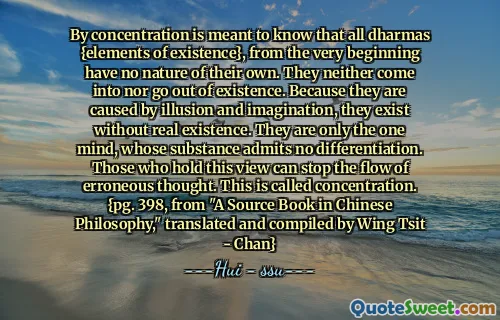Hui-szu was a significant figure in early Chinese philosophy, representing a blend of Confucian and Daoist ideas. His teachings emphasized the importance of self-cultivation, harmony, and the moral responsibilities of individuals within society. By advocating for a balanced approach to life, Hui-szu sought to demonstrate how personal virtue could lead to a more harmonious society. In his discussions, Hui-szu often critiqued rigid doctrines, emphasizing the fluid nature of knowledge and the value of adapting to circumstances. He believed that wisdom comes from understanding the complexities of life rather than adhering strictly to rules or doctrines. This adaptable philosophy resonated with many during his time, as it provided a practical approach to dealing with the various challenges of life. Hui-szu's influence is evident in the way he shaped subsequent philosophical thought in China. His ideas contributed to the development of more pragmatic and flexible approaches to morality and governance. By blending thought from different schools, he laid the groundwork for future philosophers to explore the interplay between ethics, nature, and human behavior.
Hui-szu was a significant figure in early Chinese philosophy, representing a blend of Confucian and Daoist ideas. His teachings emphasized the importance of self-cultivation, harmony, and the moral responsibilities of individuals within society. By advocating for a balanced approach to life, Hui-szu sought to demonstrate how personal virtue could lead to a more harmonious society.
In his discussions, Hui-szu often critiqued rigid doctrines, emphasizing the fluid nature of knowledge and the value of adapting to circumstances. He believed that wisdom comes from understanding the complexities of life rather than adhering strictly to rules or doctrines. This adaptable philosophy resonated with many during his time, as it provided a practical approach to dealing with the various challenges of life.
Hui-szu's influence is evident in the way he shaped subsequent philosophical thought in China. His ideas contributed to the development of more pragmatic and flexible approaches to morality and governance. By blending thought from different schools, he laid the groundwork for future philosophers to explore the interplay between ethics, nature, and human behavior.
More »
Today Birthdays
1970 -
Shonda Rhimes
1599 -
Edmund Spenser
1940 -
Edmund White
1957 -
Lorrie Moore
1691 -
George Fox
1961 -
Wayne Coyne
1934 -
Carolyn See
1965 -
Bill Bailey
1967 -
Masha Gessen
1937 -
George Reisman
1890 -
Elmer Davis
1978 -
Nate Silver
1884 -
Sophie Tucker
1960 -
Matthew Bourne
1980 -
Maria de Villota
1977 -
Orlando Bloom
1976 -
Michael Pena
1952 -
Geoffrey Canada
1951 -
Frank Peretti
1955 -
Trevor Rabin
1808 -
Salmon P. Chase
1947 -
Robert Martin
1927 -
Sydney Brenner
1926 -
Carolyn Gold Heilbrun
1954 -
Denise Morrison
1960 -
Eric Betzig
1968 -
Traci Bingham
1919 -
Robert Stack
1970 -
Keith Coogan
1989 -
Beau Mirchoff
